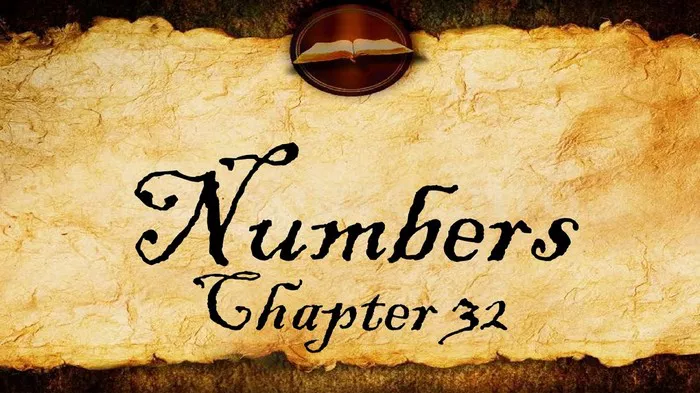Numbers Chapter 32 Summary
In Numbers 32, the tribes of Reuben and Gad, possessing large herds, request to settle east of the Jordan River—a land suitable for livestock—instead of entering Canaan. Moses initially rebukes them, fearing they will discourage Israel like the earlier generation that failed to enter the Promised Land. However, the tribes pledge to send their fighting men ahead to help conquer Canaan while their families and livestock remain behind. Satisfied, Moses agrees on the condition that they fulfill their promise. If they do, they may claim the lands of Gilead and Bashan; if not, they will face God’s judgment. The agreement is made, and Reuben, Gad, and half of Manasseh settle east of the Jordan after helping their brethren secure their inheritance. This chapter highlights loyalty, responsibility, and the importance of unity among the tribes.
Bible Numbers Chapter 32
Welcome to read Numbers Chapter 32. Here is the list of Numbers Chapter 32:
What Does Numbers Chapter 32 Teach Us?
Numbers 32 recounts the request of the tribes of Reuben and Gad to settle east of the Jordan River instead of entering Canaan. Their desire for the fertile land of Gilead and Bashan—ideal for their livestock—initially angers Moses, who fears they will discourage Israel just as the previous generation did by refusing to enter the Promised Land (Numbers 13-14). However, the tribes pledge to fight alongside their brothers until Canaan is fully conquered before returning to their families and possessions. Moses agrees but warns that failure to keep their word would be a sin against God.
Responsibility Toward Others
Reuben and Gad could have selfishly taken the best land for themselves, but they recognized their duty to help their fellow Israelites. Their commitment to fight alongside their brothers before settling teaches the importance of putting communal needs above personal comfort.
The Danger of Complacency
Moses’ initial reaction shows how past failures (like the rebellion at Kadesh) still haunted Israel. He feared history would repeat itself if the tribes abandoned the mission. This warns believers against spiritual complacency—settling for less than God’s full promise.
The Importance of Keeping Promises
Moses held Reuben and Gad accountable, emphasizing that vows made before God must be honored (Ecclesiastes 5:4-5). Their integrity in fulfilling their word (Joshua 22:1-4) contrasts with many other failures in Israel’s history.
God’s Flexibility Within His Plan
Though the Jordan River was the intended boundary, God allowed this exception because the tribes remained committed to His greater purpose. This shows that God considers the heart’s motives and rewards faithful stewardship.
Conclusion
Numbers 32 teaches that while God blesses His people with individual provisions, they must never neglect their responsibilities to the larger community. The tribes of Reuben and Gad could have acted selfishly, but their willingness to fight for their brothers demonstrated unity and faithfulness. Moses’ warning reminds us that God expects His people to follow through on their commitments.
For believers today, this passage challenges us to balance personal blessings with active participation in God’s greater mission. Whether in family, church, or society, we must avoid complacency, keep our promises, and work together to fulfill God’s purposes. True blessing comes not just from receiving God’s gifts but from using them in service to others.
Related topics:


